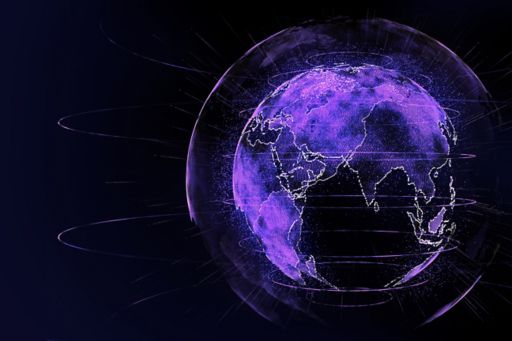Anticipate, prepare, respond
Resilience means the ability to persist, adapt, or transform in response to a crisis. That is, to hunker down and keep on with what you’re doing until the crisis passes, to change a few things to manage and keep moving, or to fundamentally transform your whole way of operating, overhauling business-as-usual and reshaping for future success. These responses don’t operate in isolation – you may be able to persist by absorbing some shock while you reconfigure to adapt or transform.
A crisis can be something sudden and largely unexpected by non-experts, like COVID-19, or bushfires, or an accident in the South China Sea that escalates rapidly.
A crisis can also be something more ongoing, like climate change. But importantly, a crisis is almost never just a tragic and random bolt from the blue – crises are both geopolitically driven, and in turn, how crises are managed has geopolitical implications.
Understanding the volatile geopolitical landscape puts businesses in a stronger position to anticipate, prepare, and respond – to be resilient.
The geopolitical crisis
There are four main global geopolitical megatrends creating an environment of considerable risk for business. All of these megatrends intersect and impact each other, and all of them have been exacerbated and accelerated by COVID-19.

“Resilience is the ability of an entity (person, asset, system, place, as examples) to persist, adapt, or transform from the effects (impacts and consequences) of acute shocks and chronic stresses while maintaining a reasonable level of functioning throughout and beyond the experience, with a view to achieving greater success into the future”.

Mark Crosweller
AFSM – Former Head of the National Resilience Taskforce
Senior Adviser to KPMG
Megatrend 1: structural shifts in the international system
It may seem just the normal state of affairs for us, but the international system we operate in was in fact carefully constructed. After the Second World War, the victors created a system of institutions and organisations for, and based squarely on, their own philosophies and ideologies. In that arrangement, countries like China, India and Brazil simply didn’t feature as players. That system, imperfect as it certainly is, is now being challenged. Global economic and political power is shifting, and the international order we have been used to is unravelling. The question is not so much, which state will be the leading power in the system, but rather, what kind of system will we have, and where will the various actors find themselves positioned in that system?
Megatrend 2: citizen anger
Around the world, real and perceived inequality is growing.[1] In the United States, workers’ real wages have stagnated for over 20 years.[2] The World Economic Forum found in 2017 that income and wealth disparity, and associated social polarisation, are two of the top three trends determining the shape of the world in the next decade.[3] More and more people feel that the globalisation project has not worked for them, and/or what benefits there are from globalisation are being soaked up by a layer of elites who prevent the increased wealth from reaching the everyday people.[4] The result is a strong sense of anger and mistrust towards the establishment status quo, including political and business elites. COVID-19 is further increasing inequality.[5]
Megatrend 3: Industrial Revolution 4.0
Describing what is happening in the realm of tech, digital and cyber as ‘the Fourth Industrial Revolution’ is not over-dramatising. The depth and breadth of change in tech, cyber, digital and data will fundamentally change every aspect of the average Australian’s life in ways that we can’t even imagine – and indeed, already is. This tech disruption is supremely geopolitical – both driven by, and in turn driving, politics.
Megatrend 4: climate change
Climate change as a driver of crisis is no surprise. As Paul Dillinger, head of Global Product Innovation at Levi Strauss & Co put it, “anyone with a supply chain is going to be affected by climate change… It’s as much an issue for us as for the Pentagon”.[6] Direct environmental impacts are extreme weather events such as an increased incidence and severity of storms, floods, cyclones, bushfires, and droughts. In February 2021, multiple severe winter storms in Texas resulted in at least 82 deaths and more than US$195 billion in property damage. The effects of the freak weather event were exacerbated by politics, namely, the state's stance on energy deregulation, as Texas had decoupled from the national energy grids.
What does this all add up to?
The world is in a state of flux. We don’t know when things will settle, or what they will look like when they do. We do know that nationalism and protectionism are on the rise, the line between the online world and the physical world is blurring, cybersecurity is lagging, the planet is heating up, and COVID-19 is exacerbating inequality and social polarisation. We do know that uncertainty and volatility are here to stay. There is no coherent global approach on political models, trade standards, and international architecture.[7]
Now is a very good time to focus on building resilience into future strategy and operations, for those who haven’t already.
What can companies do to build resilience?
Businesses need to develop the capabilities to be able to persist, adapt or transform in a crisis – to be resilient. Those who can anticipate, prepare for and respond to these global geopolitical megatrends will more effectively navigate this less predictable world, and be in a position to capitalise on opportunities.
Contact us
Further insights
Footnotes
[1] https://www.oecd.org/els/soc/dividedwestandwhyinequalitykeepsrising.htm
[2] https://www.pewresearch.org/fact-tank/2018/08/07/for-most-us-workers-real-wages-have-barely-budged-for-decades
[3] https://www.theguardian.com/business/2017/jan/11/inequality-world-economy-wef-brexit-donald-trump-world-economic-forum-risk-report
[4] https://assets.kpmg/content/dam/kpmg/xx/pdf/2020/09/geopolitical-face-offs.pdf
[5] https://www.weforum.org/agenda/2020/10/covid-19-is-increasing-multiple-kinds-of-inequality-here-s-what-we-can-do-about-it
[6] Clouds on the horizon: What climate change means for retail | Retail Dive
[7] Eurasia Group Top Risks 2021 https://www.eurasiagroup.net/issues/top-risks-2021







